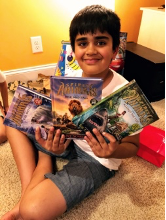What is dyslexia?
Dyslexia is a learning disorder that affects a child's ability to read, write, and spell. It is characterized by difficulties in processing language and recognizing or understanding written words. Children with dyslexia may have trouble with letter and word recognition, mixing up letters or sounds, and may struggle to decode or comprehend text. It is important to note that dyslexia is not related to intelligence and can be managed with proper support and intervention.
Does my child need Dyslexia therapy?
If you happen to notice difficulties in one or more of these areas, an evaluation for treatment may be appropriate:

- Difficulty reading fluently
- Often read slowly and make mistakes
- Difficulty matching letters to sounds
- Difficulty learning letter names and sounds
- Difficulty recognizing sounds in words
- Avoid reading, both out loud and to themselves
- Poor handwriting, including letter and number reversals
- Challenges with spelling
- Anxious or frustrated when reading.
- Slow, laborious reading
- Delayed speech as child
- Frequent ear infections
- Confusion between right/left
- Slow, laborious reading
- Family history of Dyslexia
How dyslexia is diagnosed?
Dyslexia is typically diagnosed through a comprehensive assessment conducted by a qualified professional, such as a psychologist, educational specialist, or speech-language pathologist. The diagnostic process usually involves several steps : Including initial screening, detailed evaluation (assessment of phonological awareness, spelling, decoding, reading comprehension, written expression, and nonverbal IQ), observations, clinical interview, review of educational records, and collaboration with other professionals.
Have Q’s? We are here to help
Treatment for Dyslexia
While there is no cure for dyslexia, there are various treatment approaches and interventions that can help children with dyslexia improve their reading and language.
- Multisensory Structured Language Education (MSLE)
- Orton-Gillingham Approach:
- Phonics Instruction
- Reading Programs
- Assistive Technology
Speak with a trained speech-language pathologist to identify the right treatment for your child.
